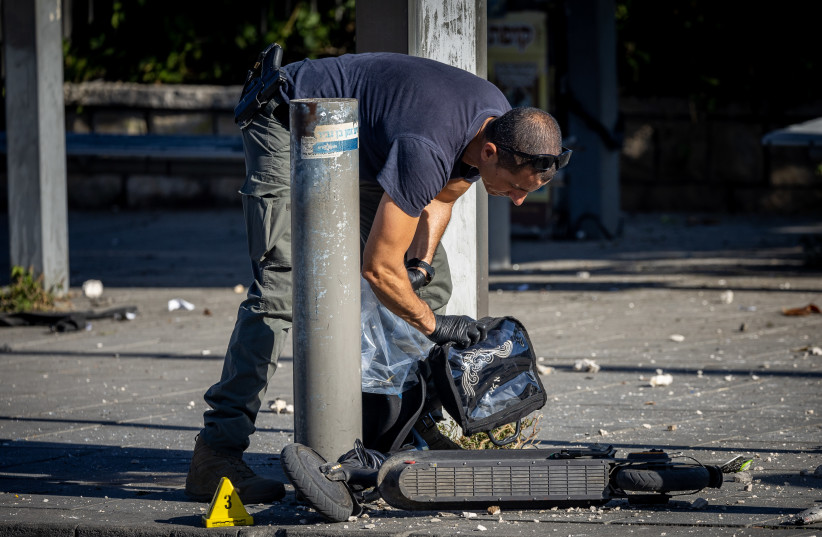Despite terrorist attacks claiming five Israeli lives in November, data released by the Shin Bet (Israel Security Agency) indicate the lowest overall number of attacks in four months.
There were 196 attacks in the West Bank, Jerusalem and the Gaza Strip in November, compared with 401 in October, 254 in September and 209 in August, the Shin Bet reported Monday.
The number of fatalities and wounded victims increased, however, as five people were killed and 28 were wounded, compared with three people killed and 19 wounded in October and two fatalities and 14 wounded in August.
What type of terror attacks were committed in November?
In late November, three Israelis were killed in a stabbing and vehicular ramming attack outside the Ariel industrial zone. A week later, two Israelis were killed when two bombs exploded at bus stops in Jerusalem.

Most of the attacks were firebombs – 121 in November, compared with 258 in October, 139 in September, 135 in August and 75 in July.
There was also a decrease in the number of shooting attacks, from 46 in October to 21 in November. The increase in shooting attacks in recent months has become a major source of concern for the IDF. The attacks targeted security forces, Israeli civilians and vehicles.
In addition, there were also 39 pipe bombs, compared with 53 in October and 39 in August. There were also two vehicular ramming attacks, one that left a soldier in her 20s moderately wounded, and two stabbing attacks.
The decrease in attacks comes as the IDF continues to carry out regular operations in the West Bank, focusing on Jenin and Nablus and their refugee camps, as part of Operation Break the Wave in an effort to end the terrorist attacks.
Why is there a decrease in terror attacks?
Israeli security forces have detained more than 3,000 Palestinian suspects and thwarted over 500 terrorist attacks, the report said.
There has been a marked increase in terrorism in 2022, with 281 terrorist attacks by Palestinians. There were also 8,483 violent incidents by Palestinians, including riots and stone throwing, in the past year, compared with 7,039 attacks in 2021.
Organized terrorist groups such as Hamas and Islamic Jihad have not carried out attacks, but they continue to incite Palestinians and instigate lone wolves to carry out attacks.
Lone wolves have been behind the majority of attacks in the past year, challenging security forces to locate and detain them before they carry out their plans.
Security forces have voiced their concerns about the continued violence in the West Bank. In addition to the 25 battalions deployed to the area, the military plans to deploy an additional 64 battalions of reservists by the end of next year.
The rise in violence in the West Bank is due in large part to a high number of Palestinian youths who feel as though they have no future, no hope and no dreams, according to Brig.-Gen. Amit Saar, head of the IDF Military Intelligence Research Department.
“We are seeing youths born after the Second Intifada who have never lived through the ‘fauda’ of that time,” he said Monday at the Gazit Conference in Tel Aviv. “They are angry, have easy access to weapons and incitement and want to make up their own ‘story’ and upload them to TikTok.”
The amount of anger and hatred of Palestinian youth is worrisome, Saar said.
“I see young people who get up at 4 in the morning just to throw stones at IDF armored vehicles that enter the village,” he said. “It’s alarming to think how much anger is needed for this, and Hamas has recognized this opportunity.”
Terrorist groups such as Hamas continue to incite in the streets and give money to terrorist operatives in the West Bank, but their attempts to have a big impact on the ground have so far failed to amount to anything, Saar said.
Hamas, which rules the Gaza Strip, continues to focus on instigating violence in the West Bank, and the beleaguered coastal enclave is relatively stable, he said, adding that the use of work permits has made a huge difference in Gaza.
“The Gazan people now have something to lose and something to gain,” Saar said. “But Gaza will be a chronic problem; it won’t be solved. There will always be an explosion of violence for whatever reason.”
